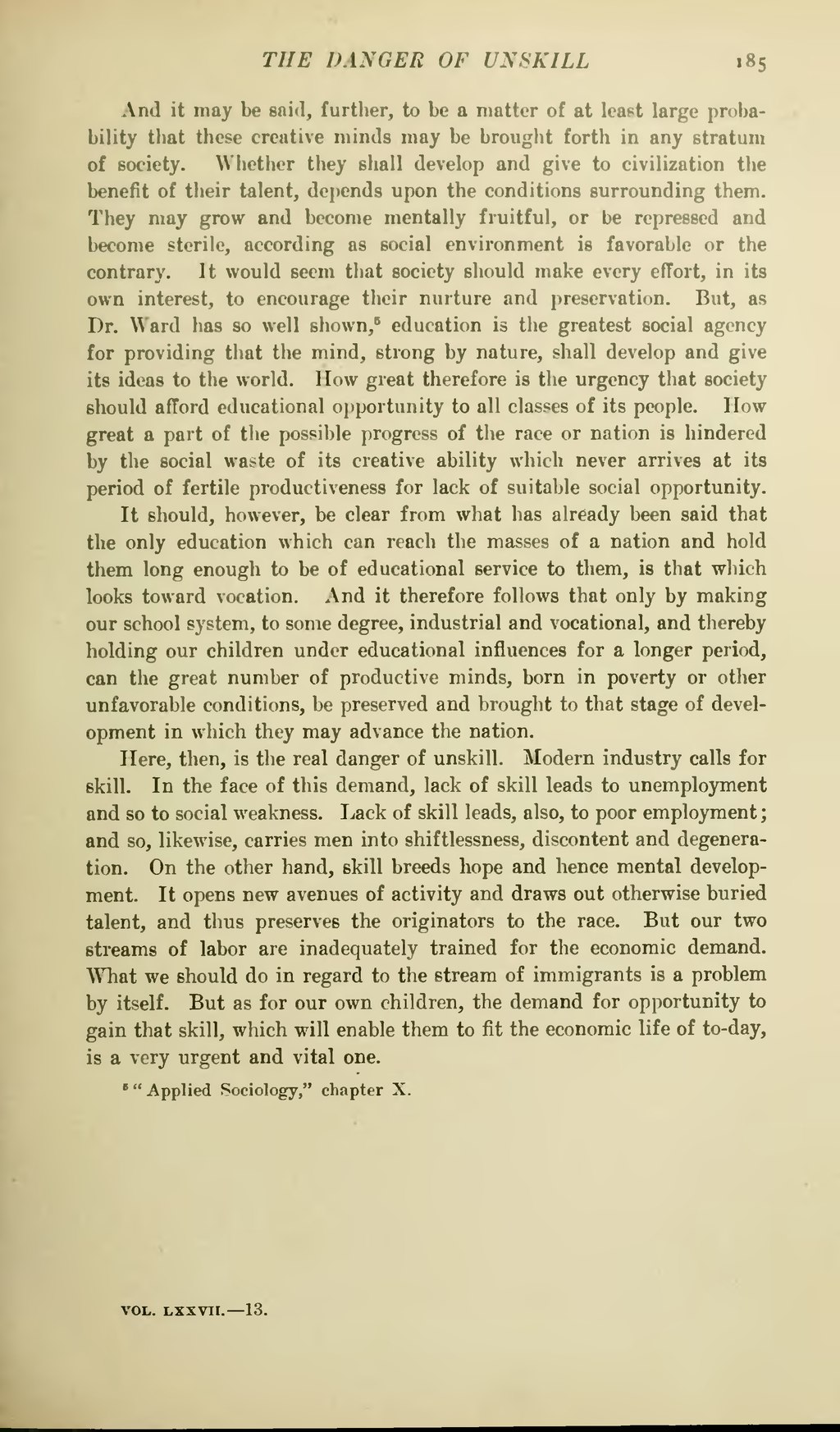And it may be said, further, to be a matter of at least large probability that these creative minds may be brought forth in any stratum of society. Whether they shall develop and give to civilization the benefit of their talent, depends upon the conditions surrounding them. They may grow and become mentally fruitful, or be repressed and become sterile, according as social environment is favorable or the contrary. It would seem that society should make every effort, in its own interest, to encourage their nurture and preservation. But, as Dr. Ward has so well shown,[1] education is the greatest social agency for providing that the mind, strong by nature, shall develop and give its ideas to the world. How great therefore is the urgency that society should afford educational opportunity to all classes of its people. How great a part of the possible progress of the race or nation is hindered by the social waste of its creative ability which never arrives at its period of fertile productiveness for lack of suitable social opportunity.
It should, however, be clear from what has already been said that the only education which can reach the masses of a nation and hold them long enough to be of educational service to them, is that which looks toward vocation. And it therefore follows that only by making our school system, to some degree, industrial and vocational, and thereby holding our children under educational influences for a longer period, can the great number of productive minds, born in poverty or other unfavorable conditions, be preserved and brought to that stage of development in which they may advance the nation.
Here, then, is the real danger of unskill. Modern industry calls for skill. In the face of this demand, lack of skill leads to unemployment and so to social weakness. Lack of skill leads, also, to poor employment; and so, likewise, carries men into shiftlessness, discontent and degeneration. On the other hand, skill breeds hope and hence mental development. It opens new avenues of activity and draws out otherwise buried talent, and thus preserves the originators to the race. But our two streams of labor are inadequately trained for the economic demand. What we should do in regard to the stream of immigrants is a problem by itself. But as for our own children, the demand for opportunity to gain that skill, which will enable them to fit the economic life of to-day, is a very urgent and vital one.
- ↑ "Applied Sociology," chapter X.

